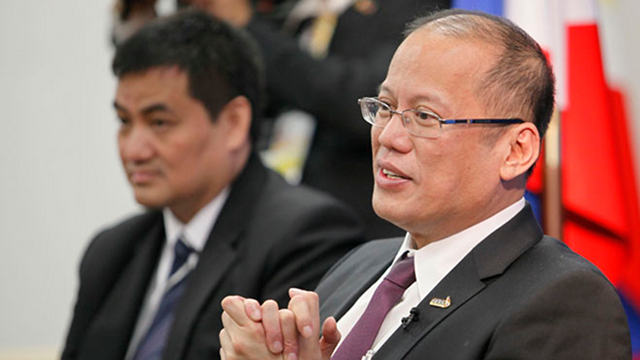SUMMARY
This is AI generated summarization, which may have errors. For context, always refer to the full article.

MANILA, Philippines – Malacañang called on critics of the Cybercrime Prevention Act of 2012 to dialogue with government instead of hacking its websites.
In a statement released as the law takes effect on Wednesday, October 3, Presidential Spokesperson Edwin Lacierda said the Palace respects efforts to question the law, both before the Supreme Court and through amendments.
“In the meantime, we believe there is an opportunity for reasonable discourse between concerned stakeholders and the Department of Justice. This dialogue can address stakeholder concerns as the Implementing Rules and Regulations are drafted.”
The Palace added, “We urge the fullest and widest participation of stakeholders in this process.”
The Justice Department is among the agencies tasked to formulate the implementing rules and regulations, and to oversee the law’s implementation.
President Benigno Aquino III and lawmakers have drawn criticism over the passage and enactment of the law. Aquino signed the law on September 12. It takes effect Wednesday after the Supreme Court failed to issue a temporary restraining order. To date, there are 9 petitions questioning the constitutionality of the law before the Supreme Court.
Activists, journalists, bloggers, lawyers, academics, students and political parties said the provisions criminalizing online libel, increasing penalties of crimes in the Revised Penal Code by one degree, the takedown clause, and collection of real time data violate the Constitution.
Critics argue that the law violates freedom of expression and freedom of speech, and gives the government too much power over Internet users.
Rappler is among the media groups that expressed opposition to the law. It joined journalists and netizens in posting black profile photos on its social media accounts to stand against the law.
‘Aquino admin upholds liberties’
While not admitting that the law is unconstitutional, Malacañang said critics should remember that the Constitution cannot and will not be “diminished or reduced by any law passed by Congress.”
“The administration is equally adamant in upholding these liberties, which were regained at such high cost by our people. As the President said on September 27, the vigorous exchange of ideas that is the hallmark of a vibrant democracy, requires those who disagree not to oppress others.”
Aquino is the son of democracy icons, the late Senator Benigno “Ninoy” Aquino Jr and former President Corazon Aquino.
The Palace pointed out that no government entity moved to deprive anyone of Internet access or suppressed civil liberties online.
“In fact, what has taken place is that hackers who claim to be aligned with critics of the Cybercrime Act are the ones who have engaged in online vandalism, depriving the broader public of access to much needed government information and services online.”
‘Stand against online vandalism’
In past weeks, hackers have targeted government websites, with efforts intensifying overnight as the law took effect. Among the targets are the websites of Malacañang, the Senate, the House of Representatives and other government agencies.
In a Youtube post, global hacking group Anonymous said the law “poses serious threats to Internet freedom, the right to privacy and other essential civil liberties including the freedom of speech, expression, and the press.”
The Palace said, “We call on critics of the Cybercrime Act to speak out against online vandalism and bullying with as much vigor and passion as they have expressed in their objections to certain provisions of this law.”
“If our freedoms have been hard won, it would do us all well to remember that in the end, vigilantism harms the cause of freedom of expression and civil liberties for all netizens,” the statement added. – Rappler.com
| . | More on the Cybercrime Law: |
Add a comment
How does this make you feel?
There are no comments yet. Add your comment to start the conversation.